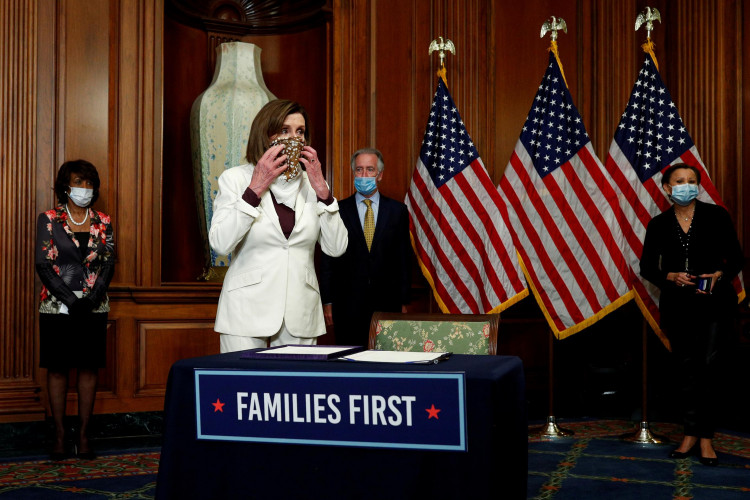The US House of Representatives overwhelmingly gave the green light for a fresh $484 billion stimulus package Thursday as the country's jobless dilemma worsened, a stark image of how lawmakers continue to attempt to resuscitate a battered economy in the midst of unabated gloom.
Of the $310 billion allotted for Paycheck Protection Program, the legislation will also allocate $60 billion for smaller enterprises without existing banking accounts, and reserve another $75 billion for healthcare systems and $25 billion for clinical trials.
The House also approved a bill that created a coronavirus oversight body that would monitor the federal government's handling of the ongoing health emergency. The legislation breezed through the Democratic-dominated House, with one policymaker voting 'present.' The members met for the first time in many weeks because of the pandemic.
Lawmakers, many of them donning face masks, gave their unanimous nod to the legislation during an extended voting session aimed at giving them time to remain at a distance from each another in connection with the government's social distancing mandate.
Before the panel approved the proposal for the bailout of a crippled American economy, it also green-lit a Democratic-led select subcommittee to manage the Trump administration's budget for $500 billion assistance for corporations, states and municipalities. The US Congress approved those stimulus package last month.
Moments before the fresh funding approval, the US Department of Labor declared that 4.4 million Americans sought jobless claims last week. Over 26 million people have processed applications for unemployment insurance since the pandemic ravaged the U.S. economy in March this year, opening up a never before seen economic quicksand.
As soon as members of the House signed the new funding into law, the focus among policymakers and even senators will be how fast the stimulus reaches the recipients. Talks about a much bigger "Phase 4 package are also making the rounds, but there is disunity over what that legislation should look like.
Such issues, along with a host of others, like election reform programs in connection to so called mail-in voting and hazard pay for essential personnel, are likely to take centerstage as talks heighten over the next set of proposals.
The $484 billion bailout funding is the fourth authorized to tackle the global health nightmare. The money provides badly needed help to small businesses and hospitals overburdened by the virus that has claimed the lives of over 47,000 Americans and rendered a record 26 million people jobless.






